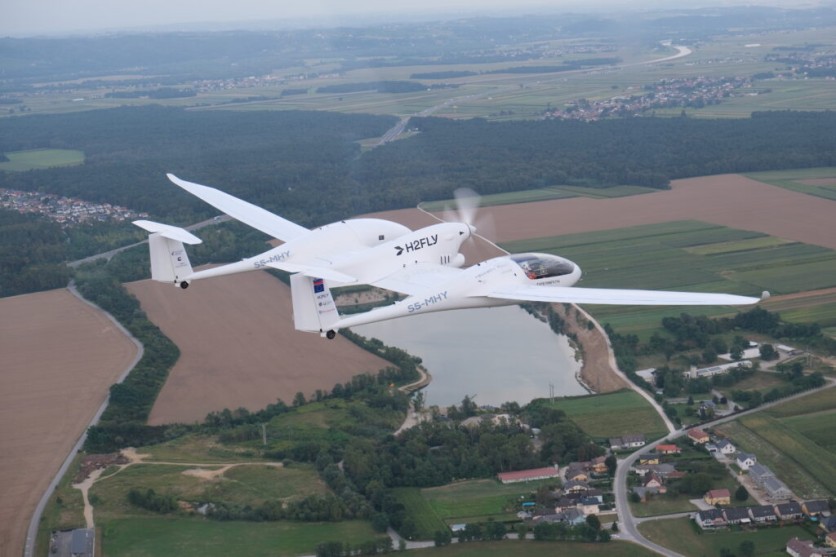The Stuttgart, Germany-based firm H2FLY has achieved a significant milestone in aviation by successfully conducting the world's first piloted flight of an electric aircraft powered by liquid hydrogen.
The achievement comes after a series of four flights, one lasting over three hours, using H2FLY's HY4 demonstrator aircraft equipped with a hydrogen-electric fuel cell propulsion system and cryogenically stored liquid hydrogen.

H2FLY Uses Liquid Hydrogen in Aviation
The trials demonstrated that the application of liquid hydrogen, as opposed to gaseous hydrogen, could double the maximum range of the HY4 aircraft from 750 km to an impressive 1,500 km. This breakthrough holds pivotal implications for the realization of emissions-free, medium- and long-haul commercial flights.
Professor Josef Kallo, co-founder of H2FLY, expressed the significance of this achievement, emphasizing the potential of liquid hydrogen to revolutionize emissions-free aviation, particularly for medium and long-range flights.
"This achievement marks a watershed moment in the use of hydrogen to power aircraft. Together with our partners, we have demonstrated the viability of liquid hydrogen to support medium and long-range emissions-free flight," Kallo said in a statement.
The successful campaign results from H2FLY's extensive research efforts and signifies the culmination of Project HEAVEN, a consortium supported by various European governments.
It was established to validate the feasibility of employing liquid, cryogenic hydrogen in aircraft and is spearheaded by H2FLY. Partners in this venture include Air Liquide, Pipistrel Vertical Solutions, the German Aerospace Center (DLR), EKPO Fuel Cell Technologies, and Fundación Ayesa.
The German Federal Ministry for Economic Affairs and Climate Action (BMWK), the German Federal Ministry for Digital and Transport (BMVD), and The University of Ulm provided funding for this endeavor.
Compared to pressurized gaseous hydrogen storage (GH2), using liquified, cryogenic hydrogen (LH2) presents the advantage of significantly reduced tank weights and volume, leading to expanded aircraft range and payload capacity.
Potential in Aviation
Pierre Crespi, Innovation Director at Air Liquide Advanced Technologies, emphasized the accomplishment's demonstration of liquid hydrogen's immense potential in aviation, highlighting its viability for storage and transportation, which are pivotal aspects of the energy transition.
Dr. Syed Asif Ansar, Head of Department Energy System Integration at the German Aerospace Center (DLR), cited DLR's extensive experience in electrified aircraft, culminating in this historic achievement: the application of cryogenic liquified hydrogen as fuel storage for a four-seater aircraft powered by fuel cells.
Having concluded the flight testing in project HEAVEN, H2FLY is shifting focus towards commercialization. It recently unveiled the development of its H2F-175 fuel cell systems, capable of operating at full power in flight altitudes of up to 27,000 ft.
H2FLY is set to inaugurate its Hydrogen Aviation Center at Stuttgart Airport next year in collaboration with the Ministry of Transport Baden Württemberg.
This facility will play a central role in Europe's aviation industry and hydrogen economy, providing integration facilities for fuel cell aircraft and liquid hydrogen infrastructure.

![Apple Watch Series 10 [GPS 42mm]](https://d.techtimes.com/en/full/453899/apple-watch-series-10-gps-42mm.jpg?w=184&h=103&f=9fb3c2ea2db928c663d1d2eadbcb3e52)



